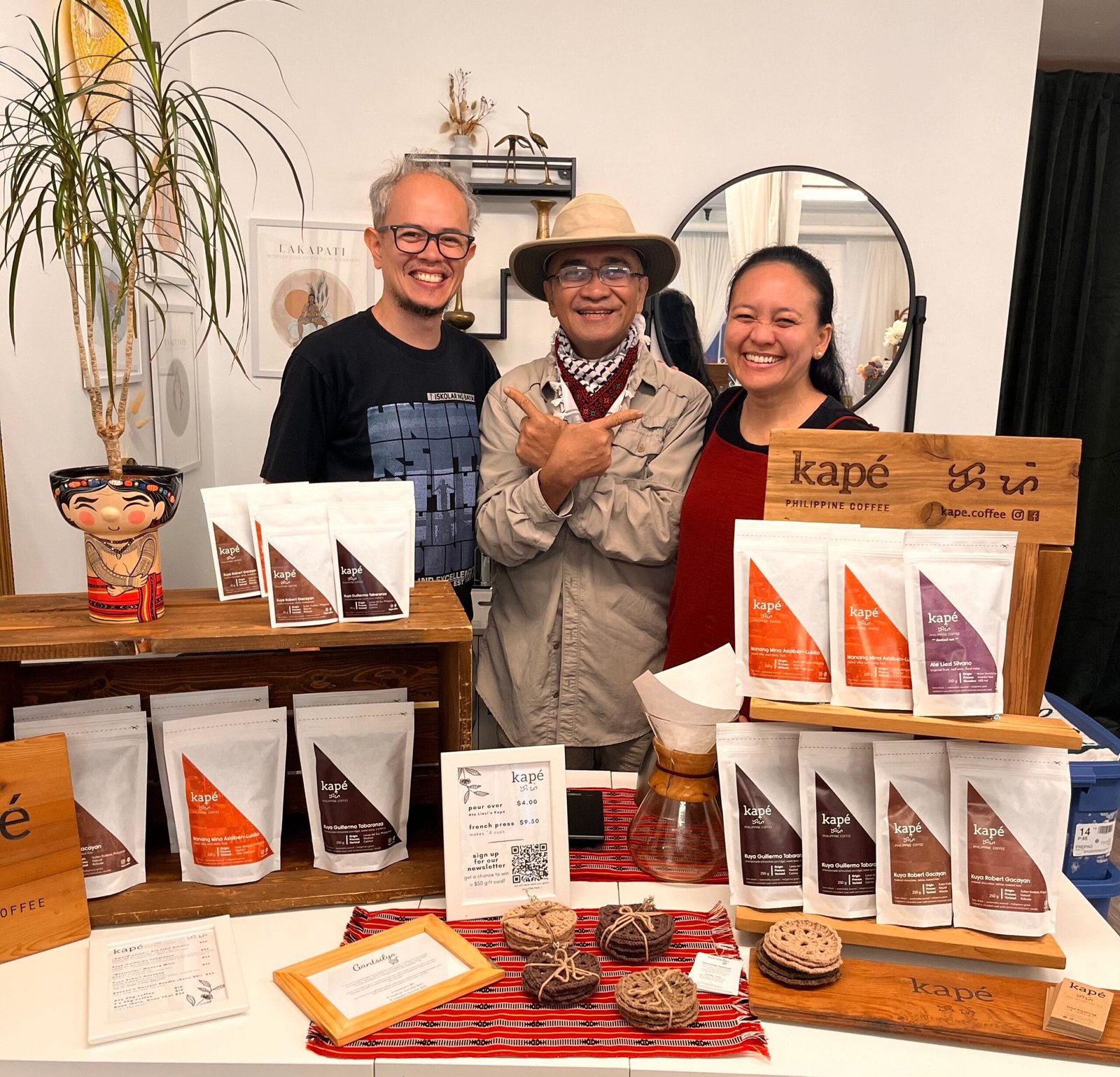CELEBRATING KAPÉ: PARTNERING FOR JUSTICE THROUGH COFFEE
Kapé Philippine Coffee, founded by Paolo and Iona Fresnoza in Vancouver, is a social enterprise rooted in justice, culture, and solidarity. More than just a roastery, Kapé uplifts Indigenous and women-led farming communities by sourcing coffee directly from them—ensuring they receive fair compensation and recognition. Their work resonates deeply with Coffee for Peace, as both organizations share a vision of peacebuilding through ethical trade and storytelling. Operating on unceded Indigenous territories in Canada, Kapé consciously bridges the struggles of Indigenous Peoples in the Philippines and Turtle Island. Paolo and Iona are not only coffee entrepreneurs—they are cultural advocates who amplify voices often marginalized in the global supply chain. Our partnership with them is a testament to the power of values-driven collaboration. Together, we are proving that every cup of coffee can carry the taste of justice and the aroma of hope.
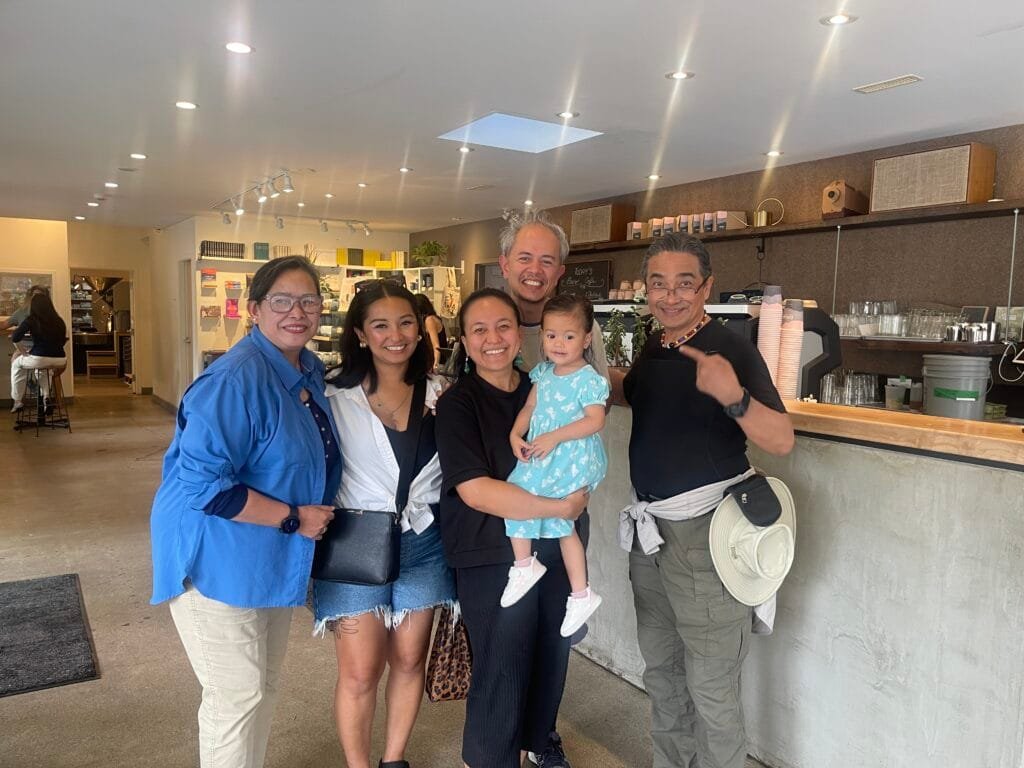
We celebrate our partners Paolo and Iona Fresnoza, the visionary founders of Kapé Philippine Coffee in Vancouver, British Columbia. More than entrepreneurs, they are cultural workers, bridge-builders, and justice advocates. With Kapé, they have created a platform that highlights the richness of Philippine coffee—and the depth of the Filipino soul—through ethical storytelling, direct trade, and community empowerment.
Kapé is not your typical coffee brand. It is a Filipino-Canadian social enterprise rooted in solidarity with Indigenous Peoples and smallholder farmers in the Philippines. From the start, Paolo and Iona envisioned Kapé as a conduit for equity-based trade that centers the dignity and stories of the growers. They actively source from women-led, Indigenous, and peacebuilding communities, including farming partners of Coffee for Peace (CFP) in Mindanao and the Cordillera region. They are deliberate in choosing farmer-direct models that ensure producers receive fair, often premium-level compensation, significantly above local market rates.
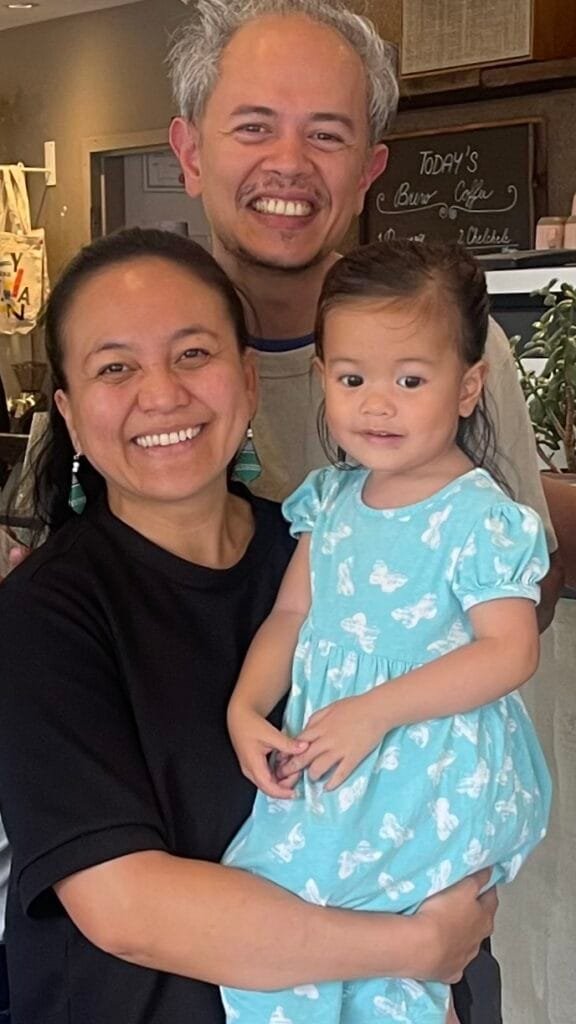
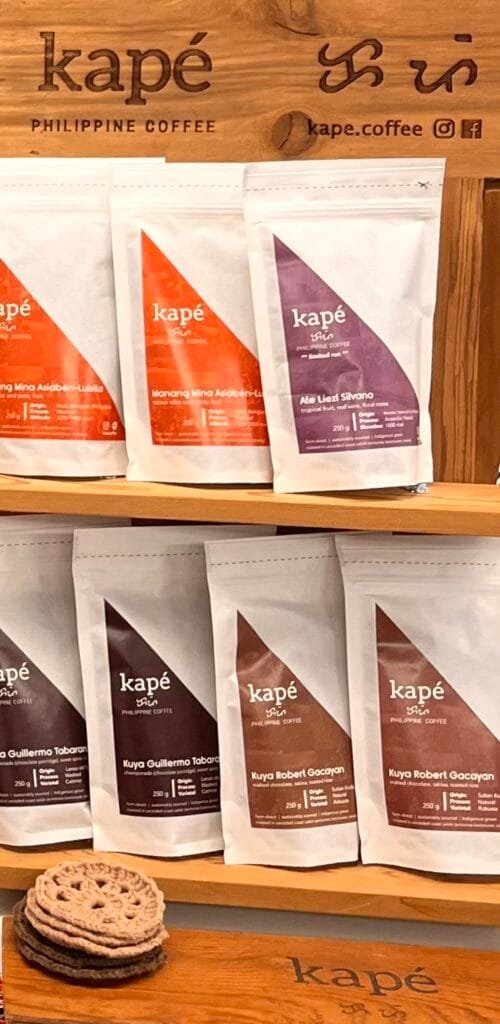
Paolo, a musician, ethnographer, and cultural practitioner, brings a deep commitment to the decolonization of knowledge and trade, while Iona, with her background in community development and business, integrates justice-oriented strategies in Kapé’s operations. Together, they operate Kapé from the unceded territories of the Musqueam, Squamish, and Tsleil-Waututh Peoples, making a conscious link between Indigenous resistance and resilience in both the Philippines and Canada. Kapé is thus not only a coffee company—it is part of a transnational, anti-colonial movement.
The partnership between Kapé and Coffee for Peace is grounded in shared values: justice, peace, sustainability, and Indigenous affirmation. Kapé features CFP-grown beans with full transparency, highlighting the unique terroir, culture, and peacebuilding stories behind every bag. This partnership goes beyond commerce—it is an expression of mutual trust, community care, and a shared mission to transform the coffee industry into a space of healing and reconciliation.
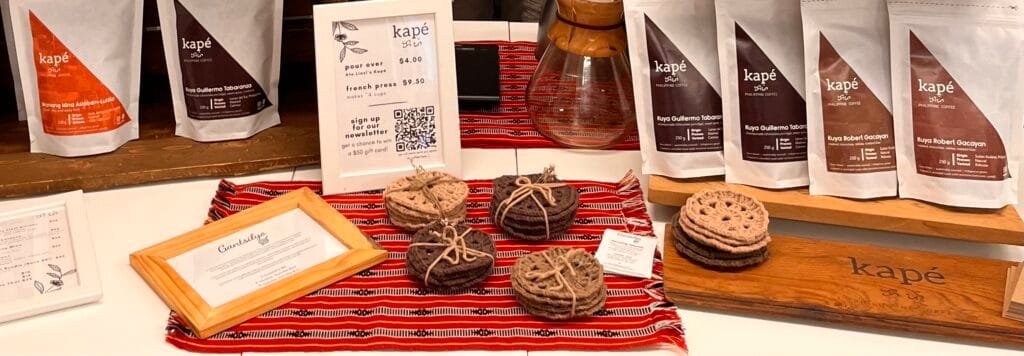
Looking ahead, we envision exciting enhancements in this partnership. These may include:
- Joint educational campaigns and storytelling events in Canada and the Philippines that highlight the lived realities of coffee farmers and Indigenous leaders.
- Collaborative research and documentation on Philippine coffee heritage as a form of cultural preservation and decolonial education.
- Pilot programs for regenerative agriculture and climate adaptation supported by both Kapé and CFP, aligning our work with global sustainability standards.
- Youth exchange programs and mentorship, cultivating a new generation of justice-based coffee entrepreneurs from both countries.
Through it all, we see Paolo and Iona as fellow peacebuilders, brewing not just coffee but hope, equity, and solidarity.
Maraming salamat, Paolo and Iona. You warm our hearts—like a freshly brewed cup shared in community, grounded in purpose, and stirred by love for our people and planet. You remind us that when justice and culture meet in a cup, coffee becomes a sacred act of resistance and renewal.

